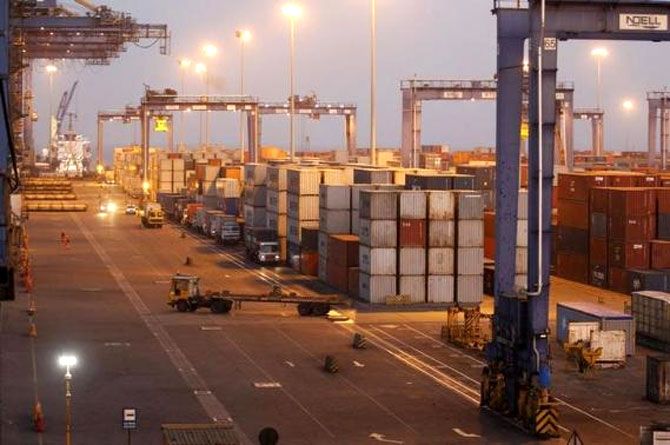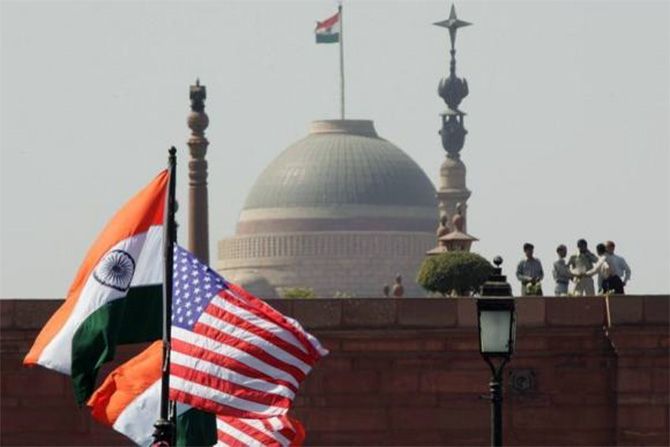India may not be prepared to meet US demands, say experts

Photograph: Amit Dave/Reuters
While trade between India and US has grown over the past decade - from $24 billion in 2003 to over $90 billion in 2013 - there are significant opportunities to deepen the relations between the two countries. With US President Barack Obama's visit to the country later this month, the ties are expected to get stronger.
A key feature of bilateral trade between the two countries has been the US' growing trade deficit with India. According to Brookings, a Washington-based think-tank, this rose from $6.3 billion in 2003 to $25.4 billion in 2013. India's merchandise exports to that country have grown from $21 billion in 2008-09 to $39 billion in 2013-14, with pearls, precious & semi-precious stones, mineral fuels & oils, pharmaceutical products and apparel being the top export products.
Its merchandise imports from the US, after dipping marginally in the aftermath of the global economic slowdown of 2008, have risen to $22.5 billion in 2013-14; nuclear reactors, machinery, pearls, precious or semi-precious stones, aircraft & spacecraft and mineral fuels & oils are the top import items.
India's services exports to the US have risen sharply as well - from $12.5 billion in 2008 to $18.6 billion in 2012 - while imports have risen only marginally from $10 billion in 2008 to $12.2 billion in 2012. The US is the sixth-largest investor in India, with a cumulative foreign direct investment (FDI) of $13 billion since April 2000.

However, despite a burgeoning trade relationship between these countries, considered 'strategic natural allies', the US is the only major economy with which India has no trade agreement. With others like the European Union, Japan and the Association of South East Asian Nations (Asean), it has trade pacts. And, the major trade agreements that the US is pursuing outside the ambit of the World Trade Organization (WTO) framework, such as the Trans-Pacific Partnership (TPP), currently exclude India.
Though greater engagement is desirable, an economist at a Delhi-based think-tank warns "a trade agreement at this stage might not be in India's best interests, as the US is likely to demand tougher environment and labour standards, a negative-list approach and elimination of tariffs that India is not prepared for".
A trade expert at an industry body concurs, saying: "Any trade agreement with the US will require significant changes to the regulatory regime and will also require opening up of the services sector, something India might find difficult to do." For instance, under an agreement on services, the US is likely to demand greater access to markets. That will involve allowing FDI in multi-brand retail and removing restrictions on foreign ownership of banks. India is not yet prepared for these.

Photograph: Carolyn Kastor/Reuters
At a regulatory level, the issue of an intellectual property rights (IPR) regime is also a major stumbling block. According to the expert, "Investments from the US are likely to be in the form of technology transfers. But the existing IPR regime, which lacks protection and enforcement in India, is not conducive to invest."
Experts contend that rather than venturing into a trade agreement, a more prudent step will be to "first negotiate an investment agreement that will be mutually beneficial to both countries". They add "we should try to gradually meet the standards of trade agreements on labour, climate change and IPR, so that in future we are in a better position to join such (TPP-like) agreements".
As stronger economic ties are essential to developing a deeper relationship, a commitment to a deadline for concluding a bilateral investment treaty, say experts, is likely to send the right signals and create the platform for greater economic integration between the two sides.












 © 2025
© 2025